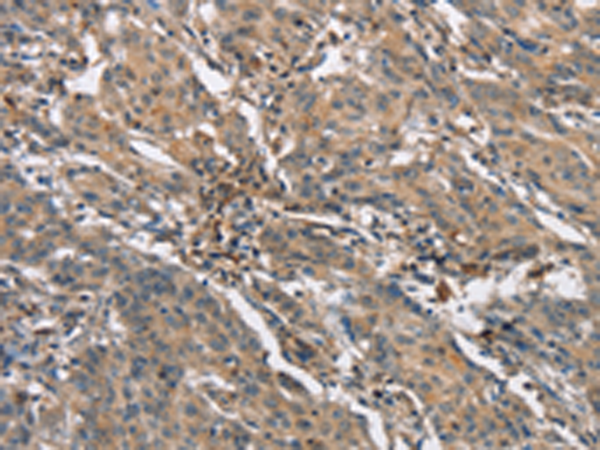

| WB | 咨询技术 | Human,Mouse,Rat |
| IF | 咨询技术 | Human,Mouse,Rat |
| IHC | 1/25-1/100 | Human,Mouse,Rat |
| ICC | 技术咨询 | Human,Mouse,Rat |
| FCM | 咨询技术 | Human,Mouse,Rat |
| Elisa | 1/1000-1/2000 | Human,Mouse,Rat |
| Aliases | AII; AVP; FCU; MWS; FCAS; CIAS1; NALP3; C1orf7; CLR1.1; PYPAF1; AGTAVPRL |
| Host/Isotype | Rabbit IgG |
| Antibody Type | Primary antibody |
| Storage | Store at 4°C short term. Aliquot and store at -20°C long term. Avoid freeze/thaw cycles. |
| Species Reactivity | Human, Mouse |
| Immunogen | Synthetic peptide of human NLRP3 |
| Formulation | Purified antibody in PBS with 0.05% sodium azide and 50% glycerol. |
+ +
以下是关于NLRP3抗体的3篇参考文献,涵盖其机制研究及治疗应用:
---
1. **文献名称**:*NLRP3 inflammasome activation and regulation in health and disease*
**作者**:Mangan MSJ et al.
**摘要**:综述NLRP3炎性体的激活机制及其在炎症性疾病中的作用,探讨通过单克隆抗体靶向NLRP3的策略,为治疗提供理论支持。
2. **文献名称**:*NLRP3 inflammasome inhibition improves glucose tolerance and reduces inflammation in a murine model of metabolic syndrome*
**作者**:Vandanmagsar B et al.
**摘要**:研究利用抗NLRP3抗体抑制炎性体活性,发现其可改善代谢综合征小鼠模型的胰岛素抵抗及炎症反应,提示抗体治疗的潜在价值。
3. **文献名称**:*A human anti-NLRP3 antibody suppresses inflammation in a novel mouse model of cryopyrin-associated periodic syndrome*
**作者**:Coll RC et al.
**摘要**:开发针对NLRP3的人源化单克隆抗体,在低温蛋白相关周期综合征模型中验证其抑制IL-1β释放及减轻全身炎症的疗效。
---
这些文献反映了NLRP3抗体在机制解析与治疗开发中的应用,涵盖基础研究到临床前试验。如需更近期研究,建议在PubMed或Google Scholar中检索关键词“NLRP3 antibody therapeutic”或“NLRP3 inhibitor”。
The NLRP3 antibody targets the NACHT, LRR, and PYD domain-containing protein 3 (NLRP3), a key component of the NLRP3 inflammasome—a multiprotein complex central to innate immunity. NLRP3 senses pathogen-associated molecular patterns (PAMPs) or damage-associated molecular patterns (DAMPs), triggering caspase-1 activation, which cleaves pro-inflammatory cytokines like IL-1β and IL-18 into their active forms. Dysregulated NLRP3 inflammasome activity is linked to chronic inflammatory diseases (e.g., gout, type 2 diabetes, atherosclerosis) and autoinflammatory disorders like cryopyrin-associated periodic syndromes (CAPS).
NLRP3 antibodies are designed to inhibit aberrant inflammasome activation, either by blocking NLRP3 assembly, interfering with protein-protein interactions, or neutralizing downstream cytokines. Monoclonal antibodies (e.g., canakinumab) targeting IL-1β have shown clinical efficacy, but direct NLRP3-specific antibodies aim to address upstream dysfunction with potentially broader therapeutic impact. Preclinical studies highlight their potential in neurodegenerative diseases (Alzheimer’s, Parkinson’s) and autoimmune conditions.
Challenges include ensuring target specificity, minimizing off-effects, and optimizing delivery to tissue-specific inflammasomes. Despite this, NLRP3 antibodies represent a promising strategy for modulating inflammation, with several candidates in clinical trials for diseases driven by inflammasome hyperactivity. Their development underscores the growing focus on precision immunotherapies for complex inflammatory pathologies.
×